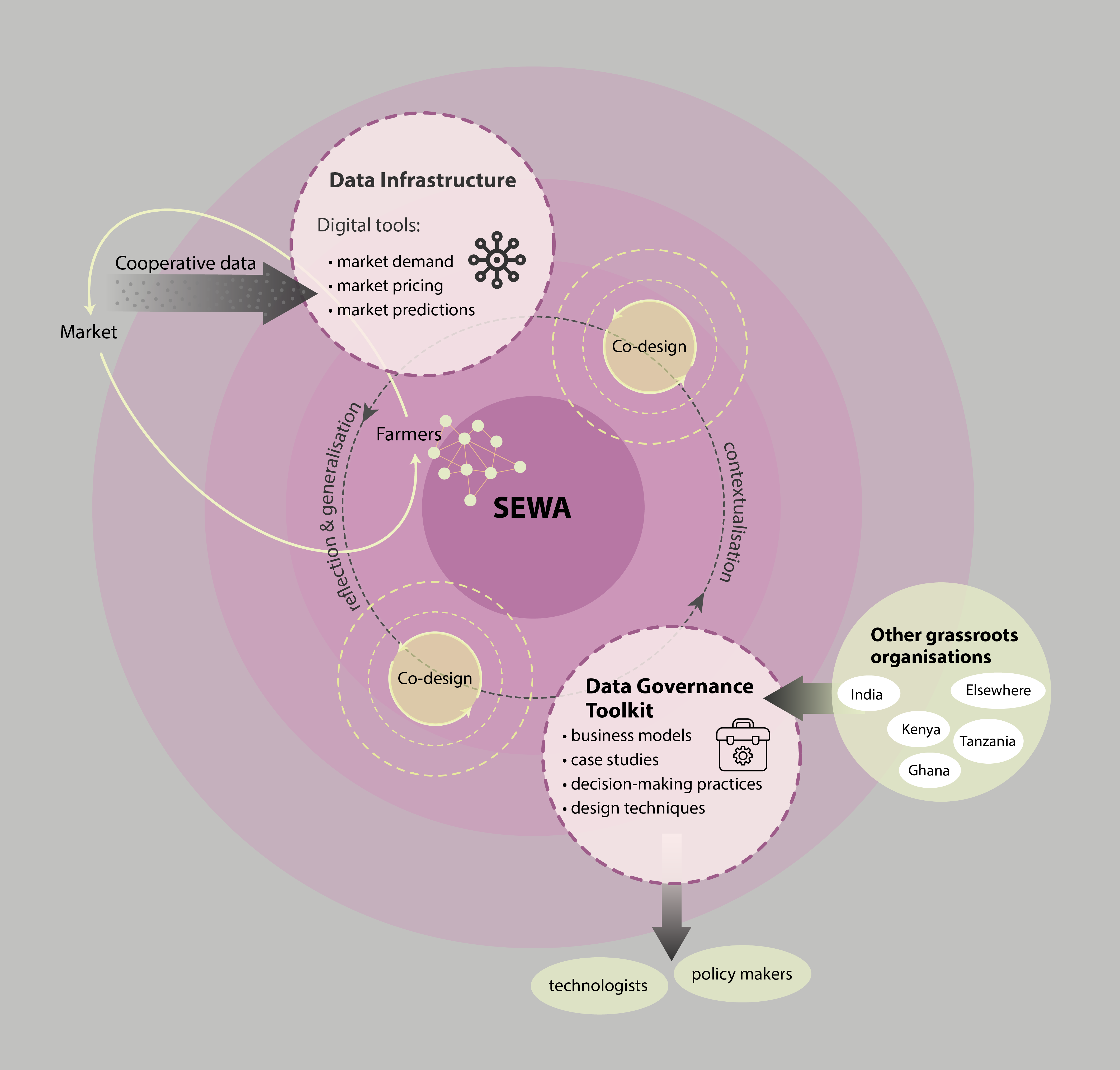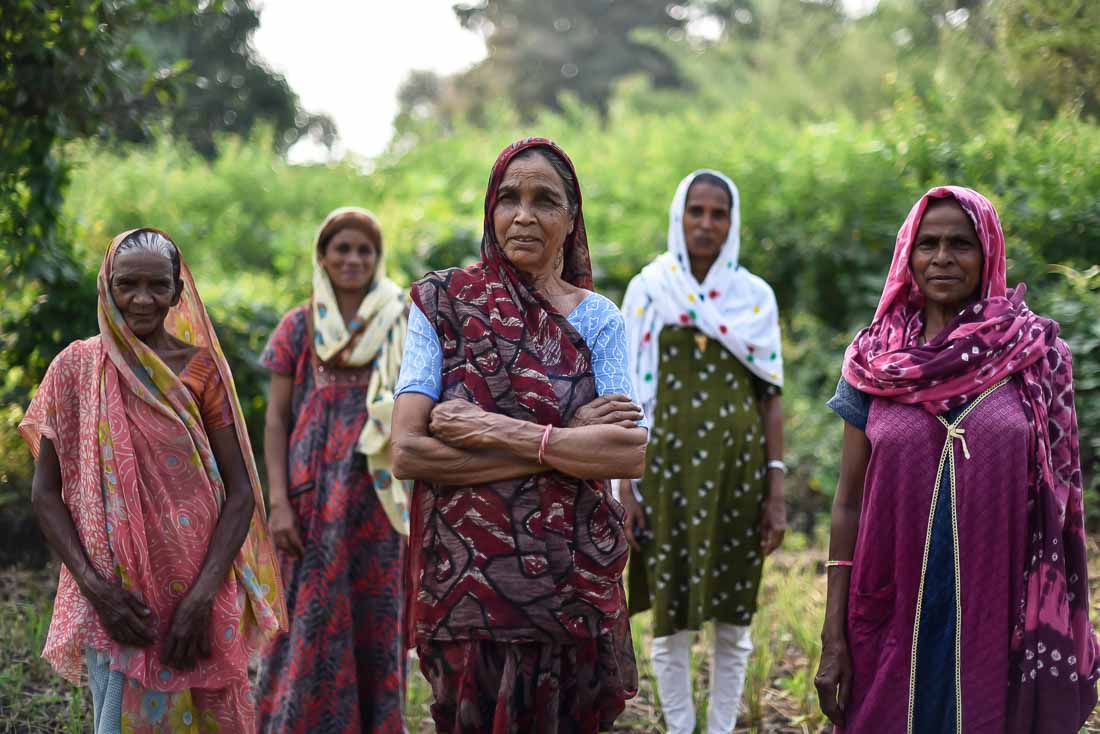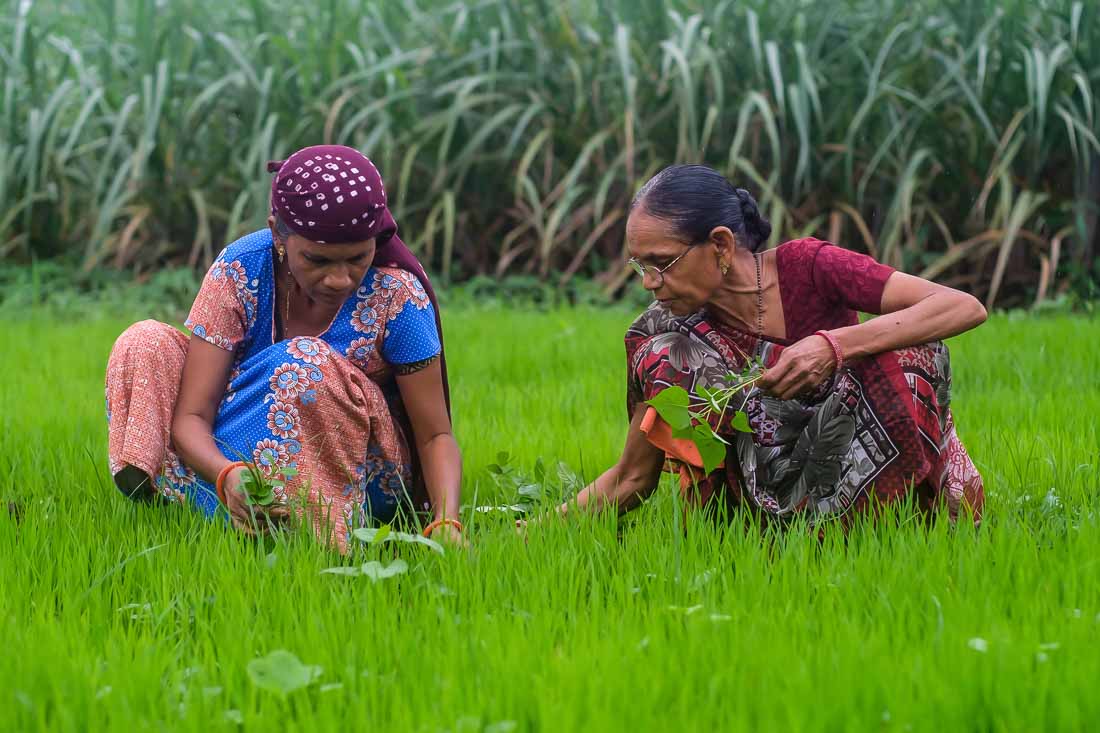About
About the project
CIFAR’s first Solution Network is working with grassroots organizations to identify and address technological barriers faced by women workers through digital literacy training and increased access to technology. The international, interdisciplinary Network with members from India, Canada, Finland, Switzerland, and the U.K, is working with the Self-Employed Women's Association (SEWA) to develop an open-access data infrastructure platform that will help women agricultural workers in India gain fair access to a competitive marketplace.

Women agricultural workers in India face significant challenges in getting a fair price for their produce and in accessing the market, forcing their dependence on middle agents. Limited access to technology creates barriers to the flow of information vital to their success and growth as workers.
The development of a data infrastructure platform will enable women agricultural workers to use machine learning algorithms to tap into rich data insights, such as tracking supply and demand for produce, predicting production costs, comparing market models and predicting competitive pricing. These insights will promote equitable economic opportunities for women agricultural workers in India.
Self-Employed Women’s Association (SEWA)
SEWA has been working for almost five decades to improve the livelihoods of poor, self-employed women workers from the informal economy in India through various initiatives using technology, technical training, microfinance, market linkages, natural resource management and more. SEWA works with women across more than 125 different trades, with the twin goals of full employment and self-reliance.

Meet SEWA

Community Toolkit
To support other organizations and communities in developing marketplaces that are equitable and fair, the Network is also designing an open-access toolkit that can be adapted and reused.